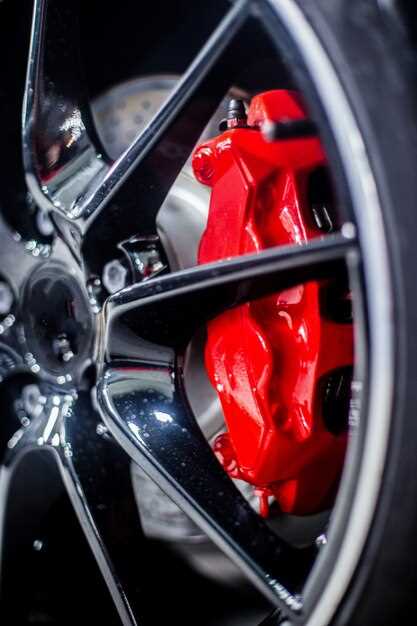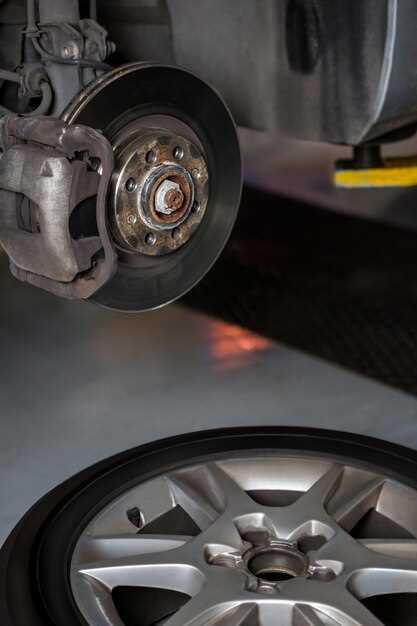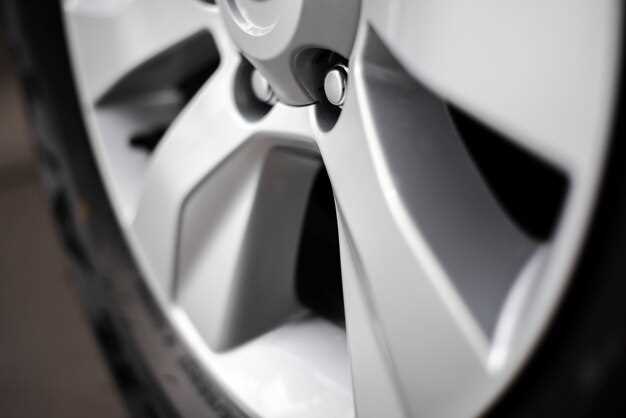
When it comes to enhancing vehicle performance and aesthetics, selecting the right type of wheels is crucial. Among the most popular options are alloy wheels and forged wheels. Each category has its own characteristics and benefits, making it essential for enthusiasts and everyday drivers alike to understand the differences before making a decision.
Alloy wheels, typically composed of a mixture of metals, offer a balance between weight and strength. They are well-known for their ability to reduce the overall weight of the wheel, leading to improved handling and fuel efficiency. However, one must consider possible compromises in durability, especially in extreme driving conditions.
On the other hand, forged wheels are crafted from a single piece of metal, resulting in a denser structure that provides superior strength and resilience. This manufacturing process ensures a lower weight without sacrificing performance. The enhanced durability of forged wheels often comes with a higher price tag, prompting potential buyers to weigh the benefits against the cost.
Choosing between alloy and forged wheels ultimately depends on individual needs and driving habits. This article will explore both options in detail, examining their construction, performance characteristics, and suitability for various driving conditions.
Understanding the Composition of Alloy Wheels
Alloy wheels are typically made from a combination of metals, primarily aluminum and magnesium. This composition provides alloy wheels with a unique blend of strength, weight efficiency, and aesthetic appeal. The use of these materials allows for designs that are not only lightweight but also visually striking, making them a popular choice among car enthusiasts and daily drivers alike.
The primary advantage of using aluminum for alloy wheels lies in its properties. Aluminum is significantly lighter than steel, which contributes to the overall weight reduction of the vehicle. This reduction in weight can lead to improved fuel efficiency and enhanced performance, especially in terms of acceleration and handling.
Magnesium, often added to the alloy blend, further improves the wheel’s strength-to-weight ratio. This characteristic allows manufacturers to create intricate designs without compromising the structural integrity of the wheel. However, the choice of materials can also influence the cost, as magnesium alloys are generally more expensive than their aluminum counterparts.
| Material | Weight | Strength | Cost |
|---|---|---|---|
| Aluminum | Lightweight | Good | Moderate |
| Magnesium | Very lightweight | Excellent | High |
Overall, the composition of alloy wheels makes them an excellent choice for those looking to enhance their vehicle’s performance while enjoying a sleek appearance. However, understanding the balance between weight, strength, and cost is essential in determining the right type of alloy wheel for specific needs and preferences.
Benefits of Forged Wheels in Motorsports

Forged wheels offer significant advantages in the realm of motorsports, where performance and precision are paramount. One of the most notable benefits is the weight reduction they provide. Unlike traditional cast wheels, which can be bulkier, forged wheels are crafted from a single piece of material, allowing for an optimized design that minimizes weight without sacrificing strength.
The reduction in weight plays a crucial role in improving a vehicle’s handling and acceleration. Lighter wheels lead to decreased unsprung mass, which enhances suspension performance and allows for quicker response times during maneuvers. This characteristic is vital in competitive racing where every millisecond can determine the outcome of a race.
Another essential aspect of forged wheels is their superior strength-to-weight ratio. They are able to withstand higher stresses during racing conditions, making them suitable for various applications, from high-speed circuits to off-road tracks. This type of wheel provides the durability necessary for the demanding nature of motorsports.
Additionally, forged wheels often come with custom design options that cater specifically to the needs of racers. This personalized approach ensures that the wheels not only perform well but also match the overall aesthetics of the vehicle. The combination of performance, durability, and customizable design makes forged wheels an optimal choice in the competitive world of motorsports.
Weight Comparison: Alloy vs Forged Wheels
When considering the performance of vehicles, the weight of the wheels plays a crucial role. Alloy wheels and forged wheels vary significantly in weight due to their manufacturing processes and materials used. Alloy wheels, typically made from a mixture of aluminum and various metals, offer a balance between strength and weight reduction. They are lighter than traditional steel wheels, enhancing vehicle handling and fuel efficiency.
On the other hand, forged wheels are created by compressing metal under high pressure, which results in a denser and stronger structure. This manufacturing technique allows for a more significant reduction in weight while maintaining performance and durability. As a result, forged wheels tend to be lighter than alloy wheels of the same size, providing better acceleration and increased responsiveness.
The weight reduction achieved with forged wheels can lead to improved overall performance. A lighter wheel reduces the rotational mass, allowing for quicker changes in speed and direction. This characteristic is particularly advantageous in high-performance and racing applications, where every ounce counts. Ultimately, the choice between alloy and forged wheels should consider the specific vehicle type and intended use to maximize benefits from weight reduction.
Impact on Vehicle Performance and Handling

The type of wheel you choose for your vehicle can significantly affect its performance and handling characteristics. Both alloy wheels and forged wheels have their unique benefits and drawbacks that can influence various aspects of driving.
- Weight: One of the most critical factors to consider is the weight of the wheel. Forged wheels are generally lighter than their alloy counterparts, which can enhance acceleration and braking performance. A lighter wheel reduces unsprung weight, allowing the vehicle’s suspension to respond more effectively to road conditions.
- Weight Distribution: Reduced weight in the wheels means better weight distribution, contributing to improved cornering stability and grip. A well-balanced wheel enhances the overall handling dynamics of the vehicle, allowing for more precise steering and control.
- Durability: Forged wheels tend to be stronger and more durable than alloy wheels. This strength allows them to withstand greater stresses while maintaining performance in demanding conditions. A robust wheel can handle impacts better, reducing the likelihood of bends or cracks that could negatively impact handling.
Ultimately, the choice between alloy and forged wheels should be based on the desired balance of weight, performance, and handling characteristics:
- If superior performance and lightweight construction are priorities, forged wheels may be the better option.
- If cost-effectiveness and aesthetic variety are paramount, alloy wheels may suffice while still providing reasonable performance enhancements.
In conclusion, the decision on wheel type influences not only the vehicle’s looks but also its overall performance and handling capabilities on the road.
Cost Analysis: Are Forged Wheels Worth the Investment?
When considering the purchase of wheels, the cost is a significant factor. Forged wheels typically have a higher upfront price compared to alloy wheels. This price difference arises from the manufacturing process, which involves applying high pressure to aluminum, creating a dense and strong type of wheel. However, this initial investment may lead to long-term savings through performance and durability enhancements.
One of the main advantages of forged wheels is their weight reduction compared to traditional alloy wheels. This reduction not only improves handling and acceleration but also enhances fuel efficiency, making them an attractive option for performance-oriented drivers. The lightweight nature of forged wheels can lead to less wear on suspension components and brake systems, further reducing maintenance costs over time.
An essential aspect of the cost analysis is the longevity of forged wheels. With proper care, they can outlast their alloy counterparts significantly. The enhanced strength of forged wheels means they are less prone to bending or cracking, which can occur frequently with alloy wheels under stress. This durability reduces the likelihood of needing replacements or repairs, leading to potential financial savings in the long run.
In conclusion, while the initial investment in forged wheels may seem steep, their performance benefits, weight reduction, and durability can justify the costs. For enthusiasts looking for the best combination of style and functionality, forged wheels represent a smart investment that can pay off through improved vehicle performance and long-term savings.
Choosing the Right Wheel Type for Your Driving Style
When selecting a wheel type, it is essential to consider how it aligns with your driving style. Both alloy and forged wheels have their unique advantages and disadvantages based on specific driving requirements.
Alloy wheels are typically lighter than their steel counterparts, making them a popular choice for everyday driving and casual use. Their reduced weight contributes to improved fuel efficiency and handling, particularly in urban environments where frequent stops and starts occur. Additionally, the aesthetic appeal of alloy wheels can enhance the overall look of a vehicle.
Conversely, if you’re an enthusiast or engage in competitive driving, forged wheels might be the better option. These wheels are crafted from a single piece of metal, resulting in superior strength compared to alloys. This strength enables them to handle higher stress loads without deforming or cracking, which is crucial during high-performance driving scenarios. While forged wheels are often heavier due to their robust design, advancements in manufacturing have allowed for lighter options that do not compromise on durability.
Ultimately, the best wheel type for your driving style depends on your priorities. If aesthetics and everyday performance are your main concerns, choosing alloy wheels could be ideal. However, for those prioritizing durability and performance in extreme conditions, investing in forged wheels will likely provide the necessary support for your driving needs.
